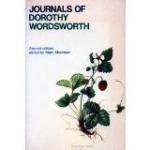|
This section contains 10,045 words (approx. 34 pages at 300 words per page) |

|
SOURCE: McCormick, Anita Hempill. “‘I shall be beloved—I want no more’: Dorothy Wordsworth's Rhetoric and the Appeal to Feeling in The Grasmere Journals.” Philological Quarterly 69, no. 4 (fall 1990): 471-93.
In the following essay, McCormick argues for a more complex analysis of Wordsworth's rhetoric in the Grasmere Journals.
Traditionally the readers of Dorothy Wordsworth's journals, from Virginia Woolf to her recent biographers Robert Gittings and Jo Manton, have seen her writing as transparent and Dorothy as transparently selfless. Such influential scholars as Ernest de Selincourt and Mary Moorman portray Dorothy Wordsworth as an ideally supportive and self-sacrificing sister, utterly devoted to her brother's welfare.1 For such readers her later madness is an inexplicable development in a personality whose traits altered radically and without warning, since according to her nephew by marriage it demonstrated that Dorothy was “all self.”2 Richard Fadem has written that such critics
were made uncomfortable by...
|
This section contains 10,045 words (approx. 34 pages at 300 words per page) |

|


